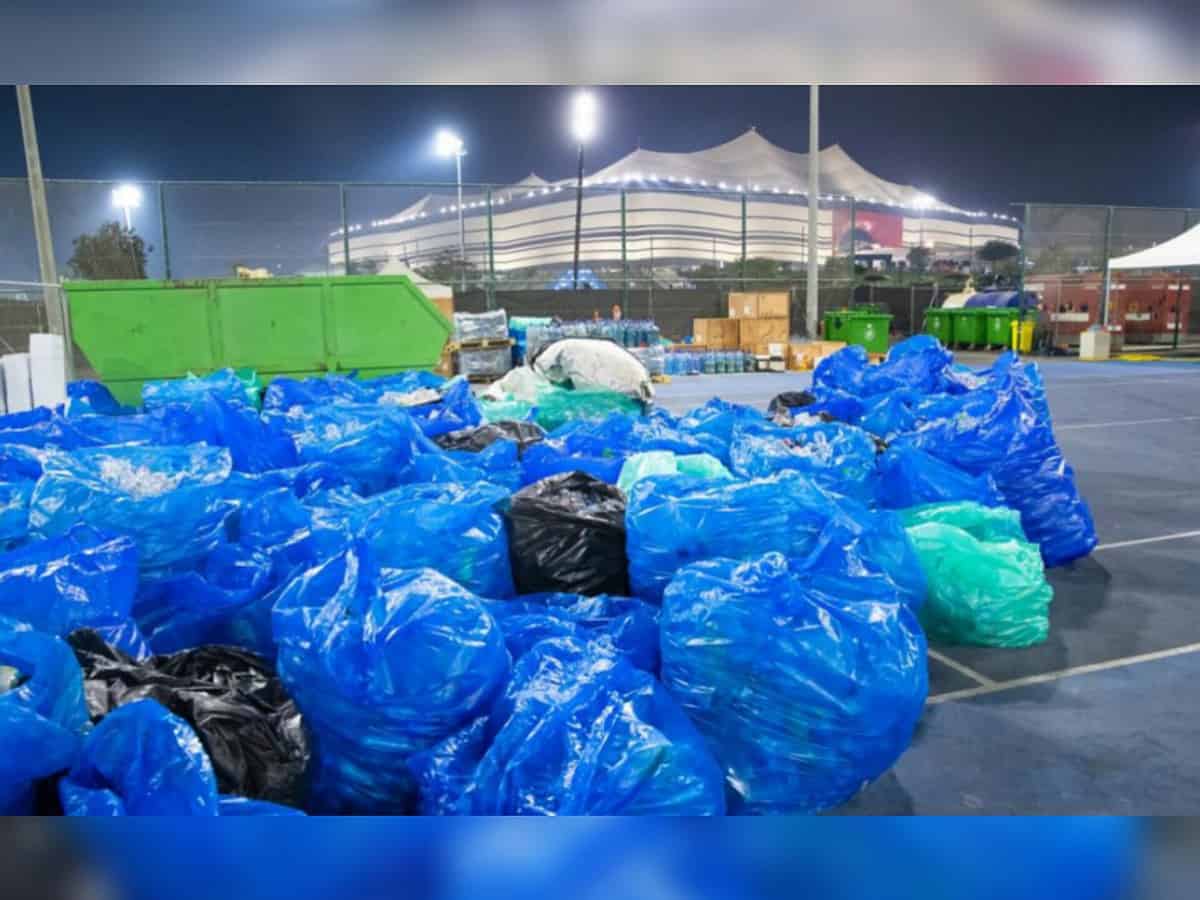
Doha: The Qatari government announced that it had recycled 80 percent of the waste of the stadiums that hosted the FIFA World Cup, which exceeded 2,000 tons.
The recycling process came as part of its efforts to reduce waste and recycle the products that were used during the tournament, Qatar News Agency (QNA) quoted the Supreme Committee for Delivery and Legacy as saying on Tuesday.
The committee revealed that the outcome of the tournament exceeded 2,000 tons of waste, which was recycled or converted into organic fertilizer.
“We are proud to announce that approximately 80 per cent of waste from stadiums has been recycled. This is a massive achievement that has been delivered thanks to detailed planning and unwavering commitment from tournament organisers and national stakeholders,” said Bodour Al Meer, the SC’s sustainability executive director.
The company distributed the waste to local factories specialized in recycling plastic, cardboard, metal, glass, and electronic waste.
Qatar World Cup sustainability strategy focuses on reducing waste and increasing recycling rates, especially plastic waste.
The tournament witnessed the implementation of a comprehensive program that included a number of initiatives on match days, including the use of biodegradable organic materials in food packaging.
The tournament encouraged the fans to dump waste in the designated containers, in order to assist in the recycling process, and to allocate sites for waste sorting in the tournament stadiums.
The organizers of the World Cup had previously sent a message of thanks to the fans of the Japanese national team for their initiative to keep the stadiums clean after the matches.
Qatar hosted the World Cup in 8 stadiums it set up for the purpose from November 20 to December 18, which concluded with Argentina’s victory over France and winning the cup.
The number of fans who attended the matches exceeded 3 million and 400,0000 fans, according to official statistics of the International Federation of Football Associations (FIFA).
